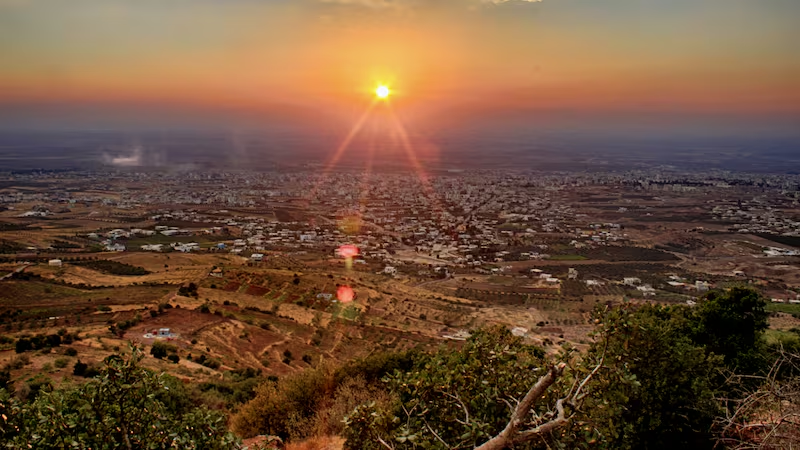The spiritual leader of Syria’s Druze Unitarian Muslim community, Hikmat al-Hijri, has urged Syrians to convene a comprehensive national conference to establish a new constitution founded on a decentralized administrative system. His call follows similar appeals by Syrian political figures after the military command assumed control of Damascus, forming an interim government in the wake of Bashar al-Assad’s regime collapse.
Rejecting Factional or Religious Authority
In a video address, Hijri, a prominent supporter of the peaceful movement in Suweida against the previous regime, stated:
“We call upon all segments of our Syrian population to hold a comprehensive national conference that unites representatives from every governorate to elect committees tasked with drafting a new state constitution based on a decentralized administrative system and the separation of powers. This is essential to safeguard governmental institutions, prevent division, and steer clear of narrow, self-serving agendas.”
Iraqi Interior Ministry Denies Presence of Maher al-Assad in Iraq
He further emphasized: “The Syrian people have emerged from decades under a corrupt security and partisan authority that killed, displaced, and oppressed millions. We are not prepared to fall under any factional, partisan, religious, or regional authority. Our priority is to resolve our challenges independently and design a civil state according to the will of all Syrians. We reaffirm Syria’s unity—its land and people—and we will not allow anyone to seize our freedom, dignity, or the achievements of our revolution. No ideology will usurp the people’s right to liberty and democracy.”
Political Reactions and Challenges
Hijri’s remarks followed a meeting with a delegation from the interim government, led by Mohammad al-Bashir, who visited Suweida to engage with political and civil figures regarding security and public services. His statement also came days after Ahmad al-Sharaa, head of the Military Operations Command, declared: “The mindset of governance must prevail, not that of opposition. Syria must remain unified, underpinned by a social contract that ensures social justice among all sects.”
Earlier, Badr Jamous, head of the Syrian Negotiating Commission, addressed the UN Security Council, highlighting the need for a comprehensive national conference to form a constituent assembly to draft a new constitution. He emphasized that free and fair elections under UN supervision should follow a constitutional referendum.
Will Damascus Respond?
According to independent political analyst Ghassan Youssef, the response of Damascus’s new leadership to Hijri’s and other leaders’ calls for a national conference and a new constitution will depend on its vision for the transitional phase. Questions remain about the constitution’s drafting process, the timeline, and whether elections will precede or follow the constitution’s adoption.
Youssef noted that some political forces fear the emergence of a one-dimensional government under Hay’at Tahrir al-Sham and its allies. During a press conference, Syrian National Coalition head Hadi al-Bahra stressed that the caretaker government must be credible, inclusive, and free from sectarian biases.
This article was translated and edited by The Syrian Observer. The Syrian Observer has not verified the content of this story. Responsibility for the information and views set out in this article lies entirely with the author.


